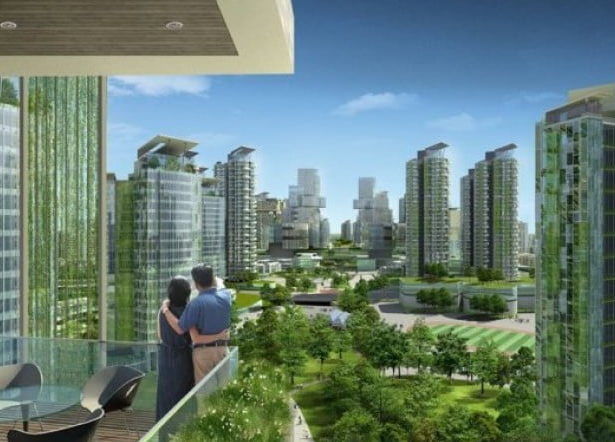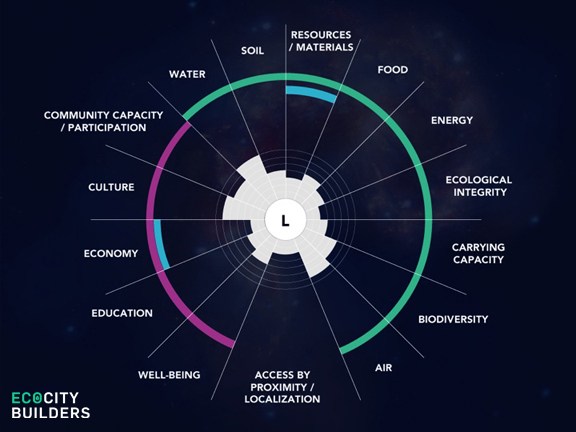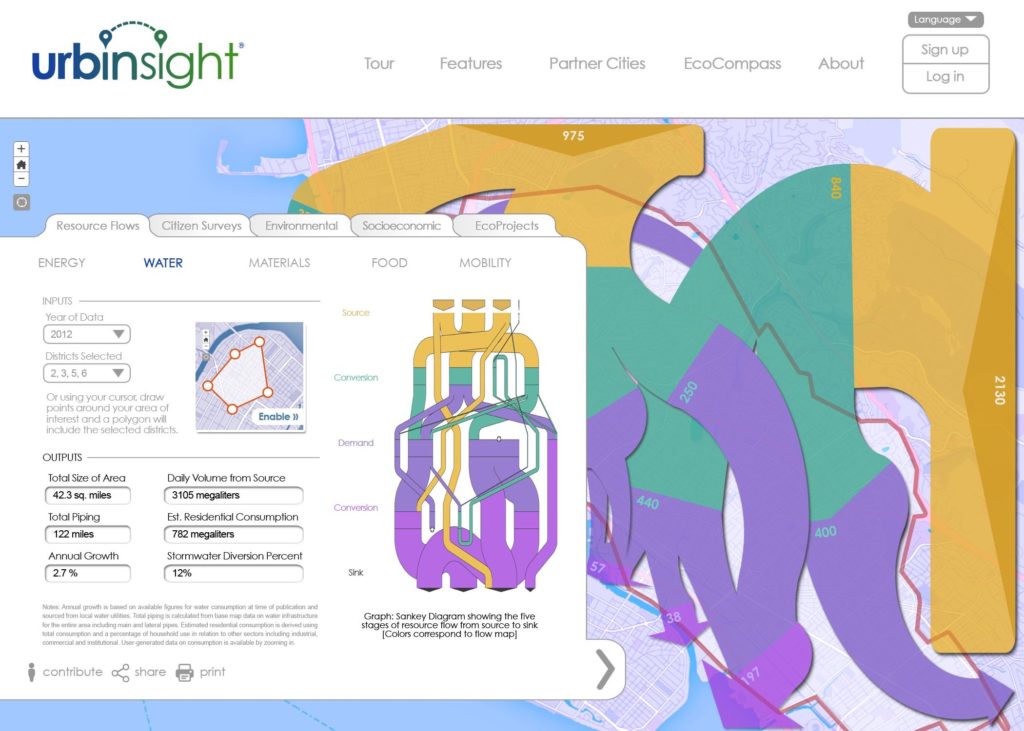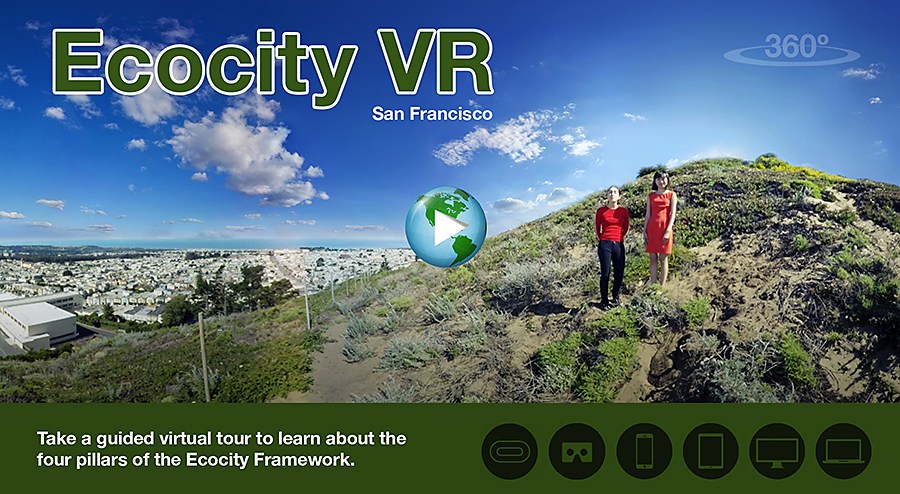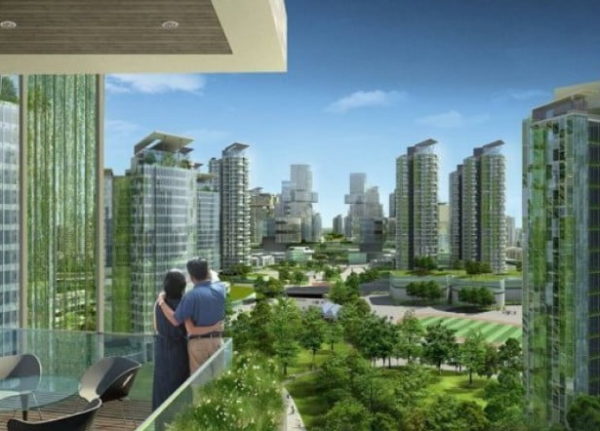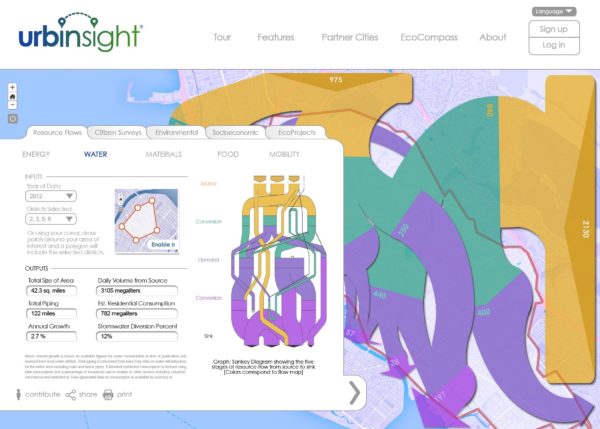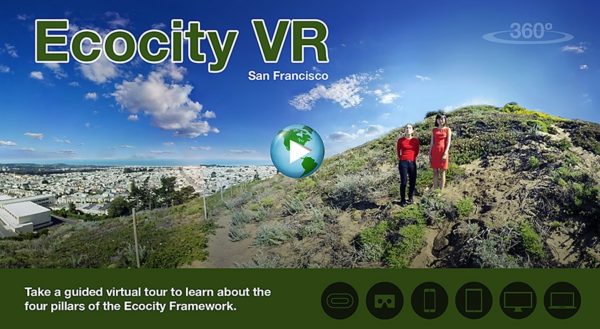During my research, I came across another approach of tackling the zero-emission challenge. The ecocitybuilders platform initiated by Richard Register, who is one of the pioneers in working for sustainable cities before smart ones were even a thing. Register coined the term Eco-City in his book “Ecocity Berkeley” in 1987 and has been promoting it since then.
Originally intended to be anti-corporate, bottom-up, small-scale, and decentralized, the concept has been mostly used by real estate projects for green-marketing in the last decade or so. Quite unfortunate, but the actual ideas resonate with our understanding of how to shape the future of cities in the open source way.
In order to pursue the original goals of the Eco-City concept, ecocitybuilders.org was created in 1992. A non-profit educational platform acting for future-proof solutions within cities. The team behind the project works on a multitude of different levels to achieve their vision.
“We develop and implement policy, design and educational tools and strategies to build thriving urban centers based on ‘access by proximity’ and to reverse patterns of sprawl and excessive consumption.”

Like our design research understanding, the project heavily focuses on participatory processes to enable community-based solutions for urban planning and policymaking. Projects like the ‘Urban Metabolism’ showcase how communities throughout the world work toward resource efficiency while the Project ‘International Eco-City Standards’ addresses policymakers, giving them a set of standards to measure their transformation toward sustainability.

Another asset that the builders use is the ‘Urbinsight Platform’ that uses data sets collected by the municipal as well as the community to raise spatial awareness and enable informed discussions about local policies. Everything is documented via an open source platform and aims at improving urban health, making it a good example of how technology can be used to encourage democratic discourse. Besides running those different programs, the team also organizes several conferences on the topic, one being the upcoming focus lab about ‘the impact of circular economies on modern cities, sustainability, and a healthy society‘ in Thessaloniki, Greece (October 3, 2018).
Both the Smart City and the Eco-City share the aspiration to improve human well-being and to reduce the environmental impacts of cities. They also have identified the value of the community as a driving factor for long-term sustainable change in cities. Even the approach of heavily relying on data to generate innovation seems to unify both concepts and raises the question of what makes them really different? For now, let’s stay with Ecocities Emerging Author Jennie Moore:
“Where ecocities give emphasis to citizen-led stewardship, smart cities revolve around the use of technology. As such, an ecocity approach lends itself to grass-roots initiatives that mobilize public participation efforts while smart cities lend themselves to a passive adaptation of urban systems or behaviors at a mass-scale.”
